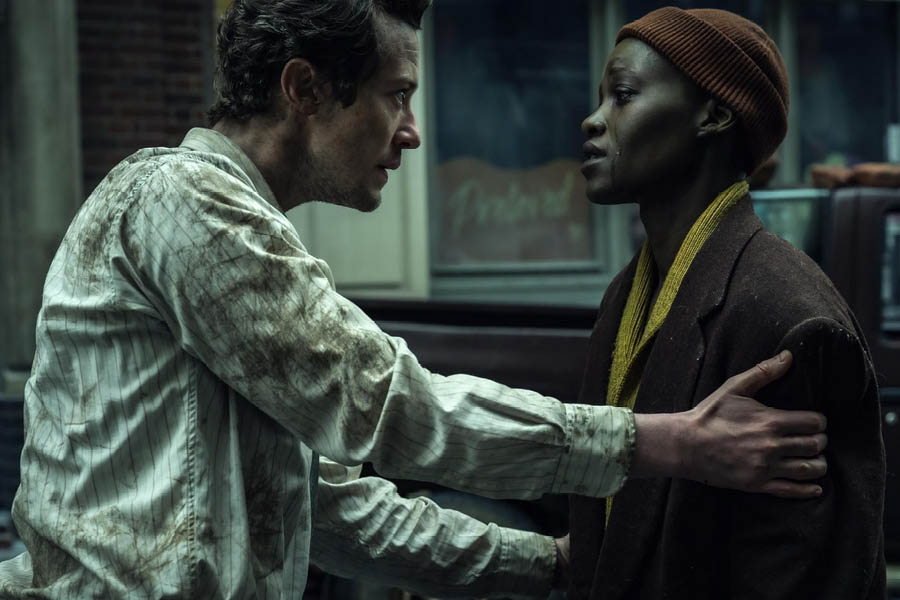John Krasinski’s A Quiet Place (2018) took us to a terrifying new world — one where survival depended on making no sound — and left us marvelling at how the Abbott family stayed alive in near silence. The film’s prequel, A Quiet Place: Day One, directed by Michael Sarnoski, is a surprisingly tender and suspenseful spinoff and perhaps the franchise’s strongest entry yet.
While the events in A Quiet Place took place on the 472nd day of the alien invasion, Day One throws us into the immediate aftermath of the invasion. The familiar farmhouse is not yet here; there’s only the chaos of a collapsing world.
The film begins with Samira (Lupita Nyong’o, in a compelling act), a terminally-ill cancer patient who lives at a hospice in New York with her cat, Frodo. She reluctantly joins other patients in a group outing to Manhattan one day. During their trip, meteor-like objects crash into the city, revealing hostile extraterrestrial creatures that begin to attack people.
These aliens are blind and can only sense sound, however low the decibel is. Samira and other survivors take refuge in a puppet theatre and wait in silence as military helicopters warn civilians to stay hidden. Samira, realising that her days are numbered, is desperate to visit Harlem to get a pizza from an eatery she used to frequent as a child with her father.
On her way, Samira comes across Eric (Joseph Quinn), an English law student, and they decide to travel together, narrowly avoiding the creatures as they head to Harlem in search of pizza and safety. Samira and Eric’s dynamic forms the emotional core of the film, a bond strengthened by the shared burden of grief and uncertainty.
Day One lacks the novelty of Krasinski’s film but the focus on the initial invasion offers a fresh perspective. The film’s strength lies in its ability to expand the universe of A Quiet Place. The ingenuity displayed by the characters in adapting to their new reality — soundproofed paths, communication through sign language — adds depth to the world-building.
Known for his acclaimed film Pig, Sarnoski brings a distinct visual style to the franchise. The wide-scale destruction of iconic landmarks in Manhattan is a sight to behold, the sweeping chaos contrasting perfectly with the private scenes of survival. The camerawork is often intimate, placing us right in the shoes of the characters as they navigate a world that has become their worst nightmare. The sound design, a crucial element in any A Quiet Place film, is masterful once again. The silence is punctuated by the chilling screeches of the creatures and the ever-present fear of making a single, fatal sound.
Day One doesn’t rely as heavily on jump scares and white-knuckle tension (though it delivers plenty of those too) as the original film. The emotional toll of attempts at survival and the descent into madness becomes the centrestage.One standout scene features Djimon Hounsou as Henri, a character familiar to fans of A Quiet Place: Part II. He encounters a panicked civilian on the verge of a breakdown, the tension thick enough to cut with a knife. It’s a testament to Sarnoski’s ability to build suspense with minimal dialogue and by incorporating subtle performances.
P.S. Like Snoop, the dog from Anatomy of a Fall last year, Frodo the cat is also a scene-stealer in A Quiet Place: Day One.










